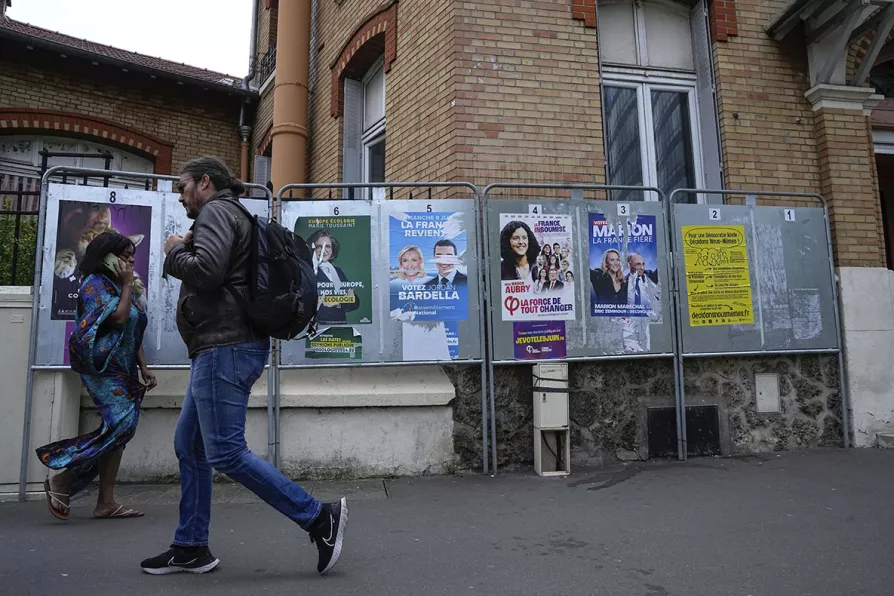
 People walk past a row of campaign posters for the upcoming European election in Courbevoie, west of Paris, June 6, 2024
People walk past a row of campaign posters for the upcoming European election in Courbevoie, west of Paris, June 6, 2024
VOTERS in Ireland and the Czech Republic took to the polls today on the second day of the elections for the European Parliament, where a surge of the far-right across the 27-nation bloc was likely to emerge from the electoral marathon.
Final results will not be released until tomorrow night, once voting is completed in every country. However, an exit poll on Thursday after the elections kicked off in the Netherlands confirmed that Geert Wilders’s far-right Party for Freedom (PVV) party should make big gains.
Although a coalition of pro-European parties pushed the PVV into second place amid a bigger turnout than at the previous EU elections, Mr Wilders’s party looked to have made the biggest gains of the night.

From Reform UK to Trump, Orban and beyond, the far right is organised across borders and growing. Waiting for it to collapse is a fatal error – building an international, locally rooted left alternative is now an urgent necessity., argues ROGER McKENZIE

JOHN CALLOW examines what went wrong for the Czech communist party in the recent parliamentary elections, where it failed to meet the threshold to return deputies and some now talk of the party abandoning its commitment to socialism












